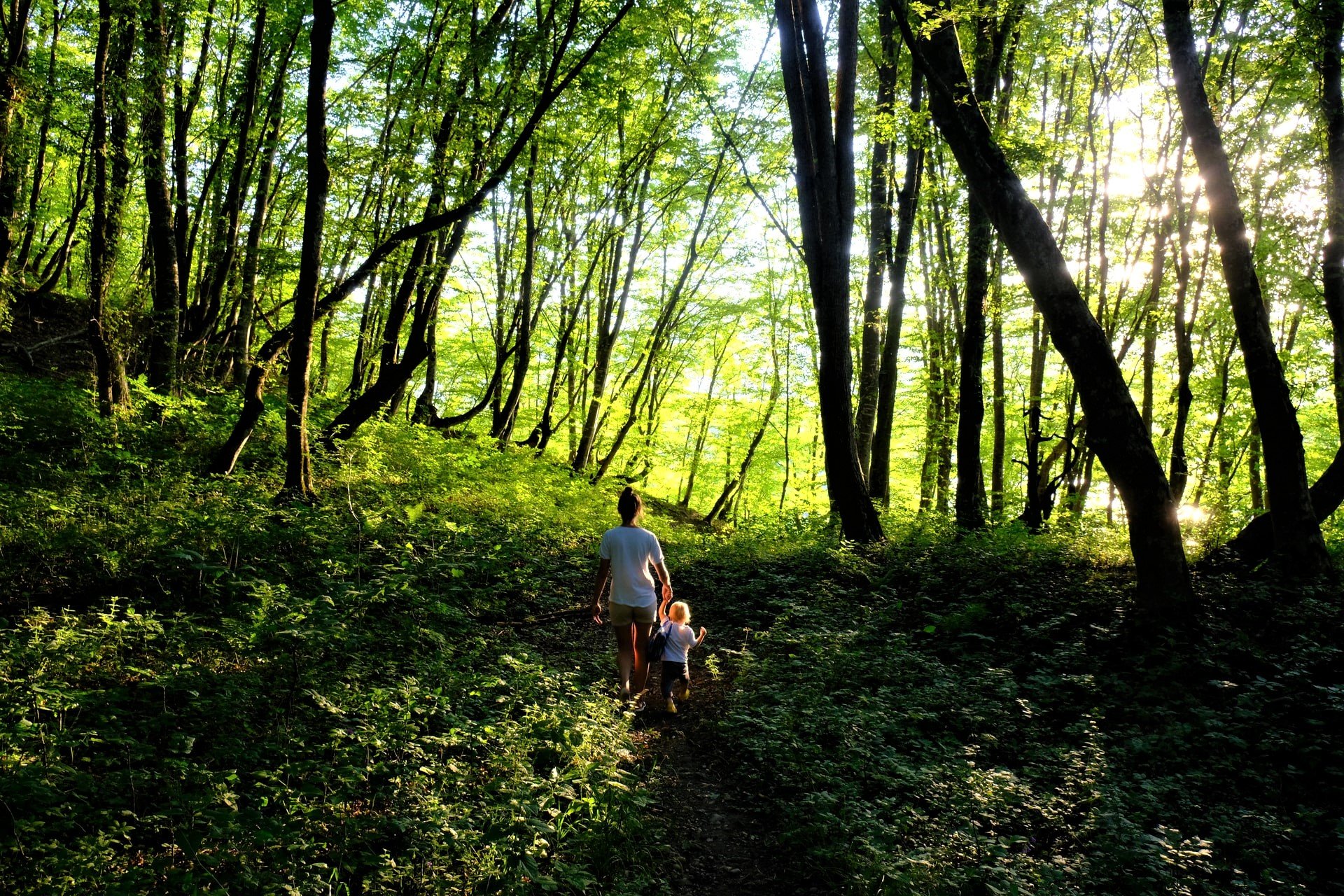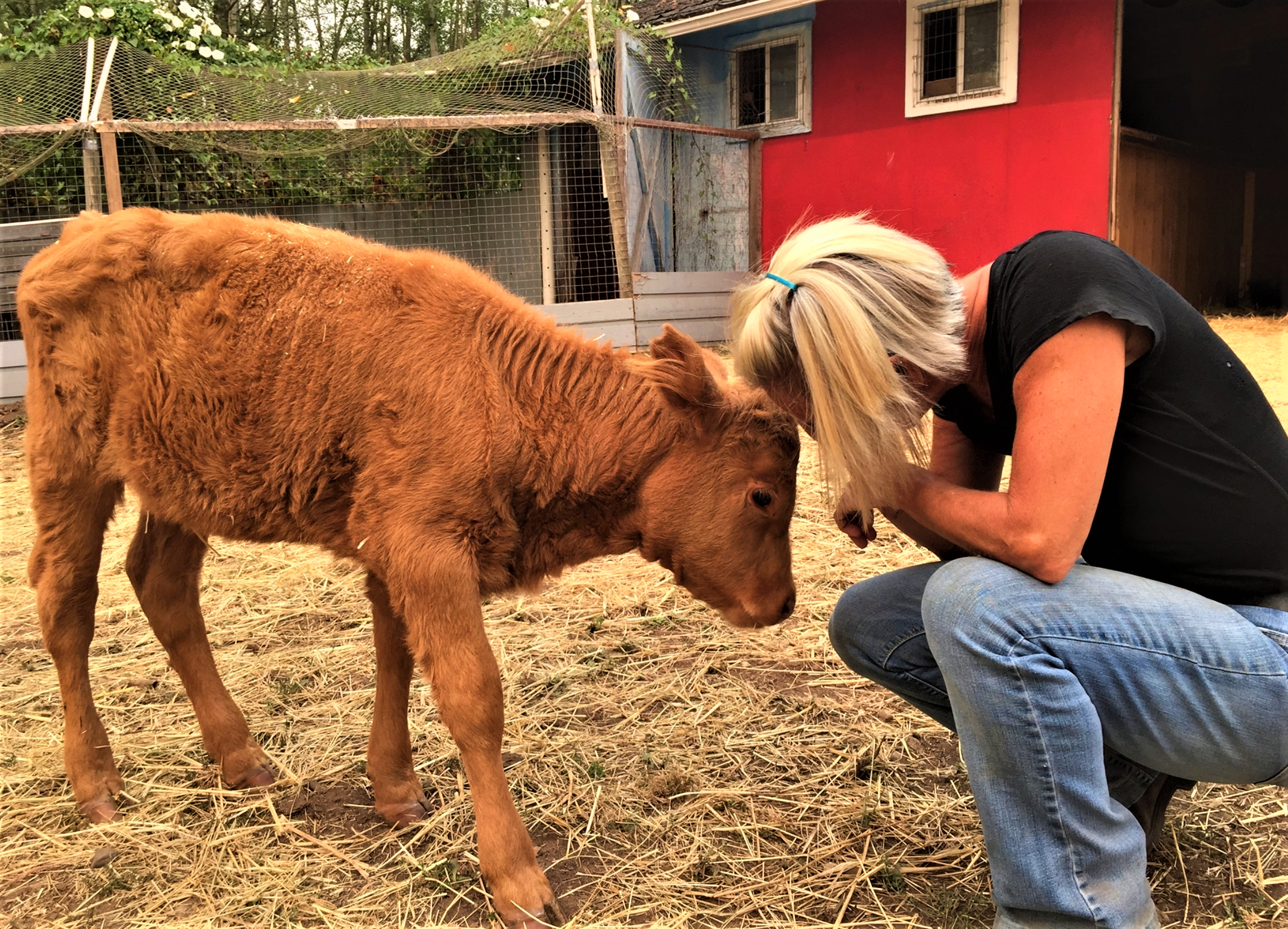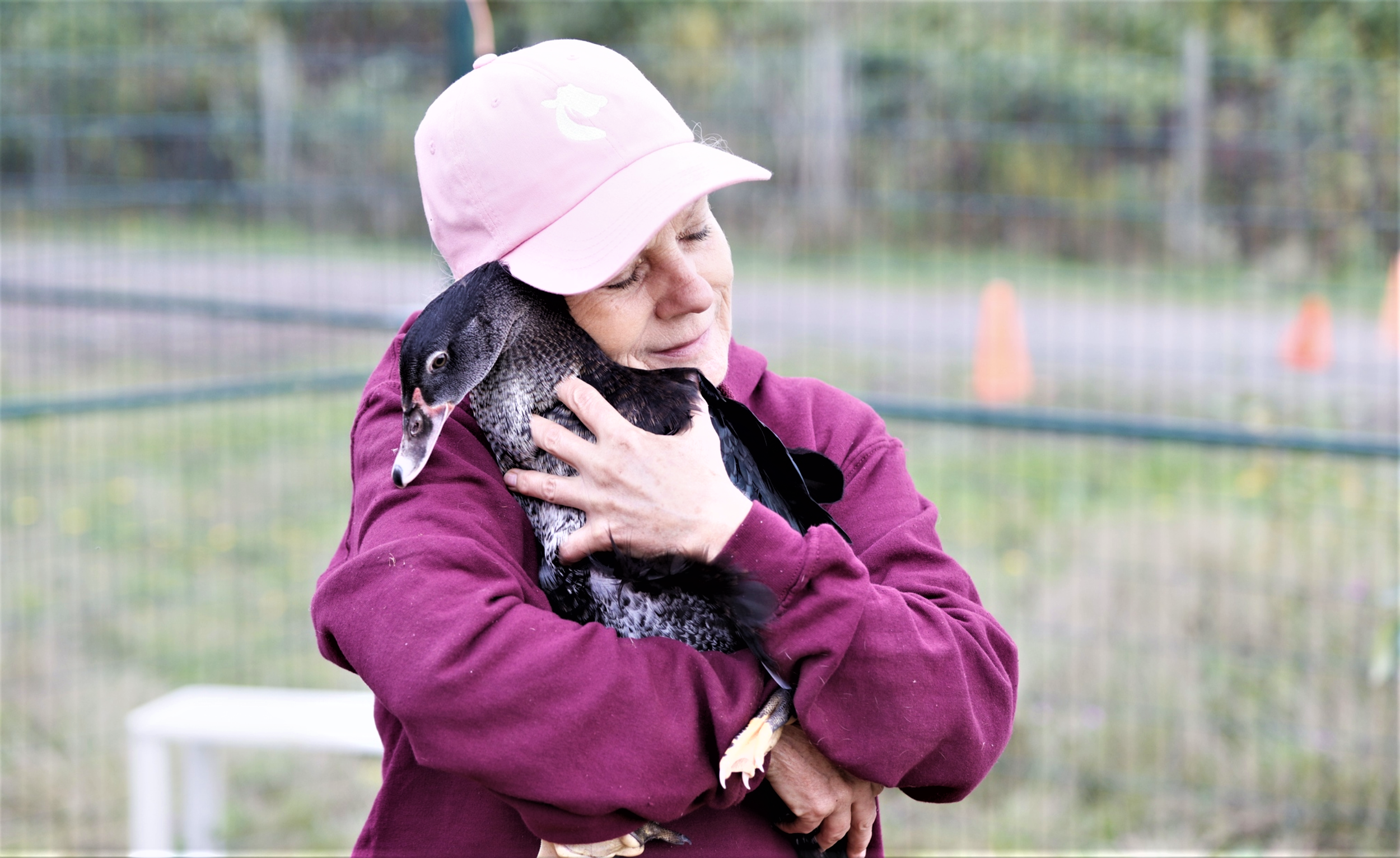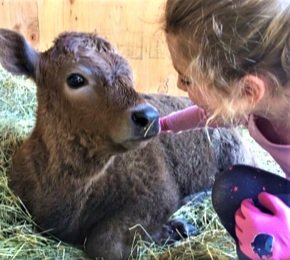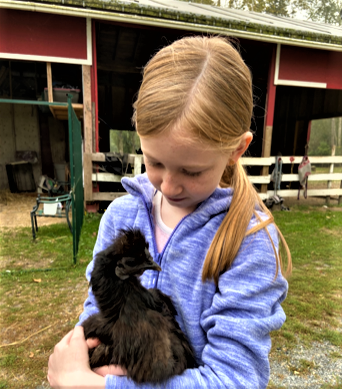By Jessica Scott-Reid
Jessica is a Canadian writer, animal advocate and plant-based food expert. Her work appears regularly in media across Canada and the US.
Since the start of pandemic lockdowns, concerns around mental health, particularly of children, have increased. Time spent away from school, friends and nature, and more spent indoors, isolated and engaging with screens can lead to children and teens feeling anxious, lonely and stressed. Even before the pandemic, navigating how much time children spend indoors and engaged with screens had become a challenge for many parents. But as therapist Julie Casey from Nourishing Hearts Wellness Care Farm explains, a mere 20 minutes spent in nature, and with animals, can help counter the stressors children face. And now it may be more crucial than ever to seek that time with Mother Earth.
According to a 2021 study published in the journal Nature Sustainability, children today are spending less and less time in nature, and this can lead to decreases in cognitive development. When children are exposed to green spaces however, such as parks and forests, the research found they score higher for cognitive development and are 17% less likely to experience emotional issues and behavioural risks.
For humans of all ages, Lisa Nisbet PhD, a psychologist at Trent University, tells the American Psychological Association: “there is mounting evidence, from dozens and dozens of researchers, that nature has benefits for both physical and psychological human wellbeing.” Just by taking a walk in nature, even urban nature, she explains, your mood can be enhanced. “And the sense of connection you have with the natural world seems to contribute to happiness even when you’re not physically immersed in nature,” she adds.
Photos above and below: Kindred Farm Sanctuary
That the connection with nature can be fostered via interactions with animals is also well documented. Spending time with companion animals can have measurable physiological benefits to human health, by lowering the stress hormone cortisol, decreasing anxiety, and leading to more community involvement. There is also emerging research that safe interactions with non-companion animals can result in similar positive outcomes.
At Ontario’s Nourishing Hearts sanctuary, it is farmed animals and a rural setting that offer therapeutic assistance to children, teens and adults. “Many kids are not exposed to farm life,” explains Casey, “and when you think about humans, we evolved with these animals for hundreds, thousands of years; they are part of our DNA.” So connecting with farmed animals she says, rouses something within us.
“Oxytocin is a main hormone that is stimulated when we are engaging with animals,” Casey explains, “which is nicknamed the love hormone or the hug hormone.” The animals naturally have a calming effect, and are non-judgemental, she adds. “Kids can be self-conscious, because of social media; they are getting feedback from their peers more than any other generation. And animals create this safe space where they can just be accepted.”
Christine Mayworm, program director at Kindred Community Farm Sanctuary, in British Columbia, has also seen these therapeutic theories in action. Working with various frontline and healthcare workers, as well as children, Mayworm pairs each with a rescued farmed animal. They can go for a walk alongside horses, for example, “And that’s very powerful because a horse won’t walk with you if they don’t trust you,” Mayworm explains, “so you have to really engage in a relationship with them. You can’t force a horse.”
In this way, she says, horses are a type of biofeedback meter: “When they are with you they pick up everything that is going on with you, and they will either move in closer or they will walk away depending on what you are emanating” she says. “They are very energy responsive,” with a way of reflecting back to you.
As pandemic restrictions continue, and concerns about mental health compound, especially for young people, looking to nature and animals can offer a way to lower stress and increase resilience. “Kids live stressful lives,” says Casey, pointing to physical stressors that screens put on the brain, and outward pressures from school and peers. “Just 20 minutes in nature can have a restorative effect,' she says, "help calm the body, help calm the brain, and have a reset.”
Sounds like great advice for all of us right now.

